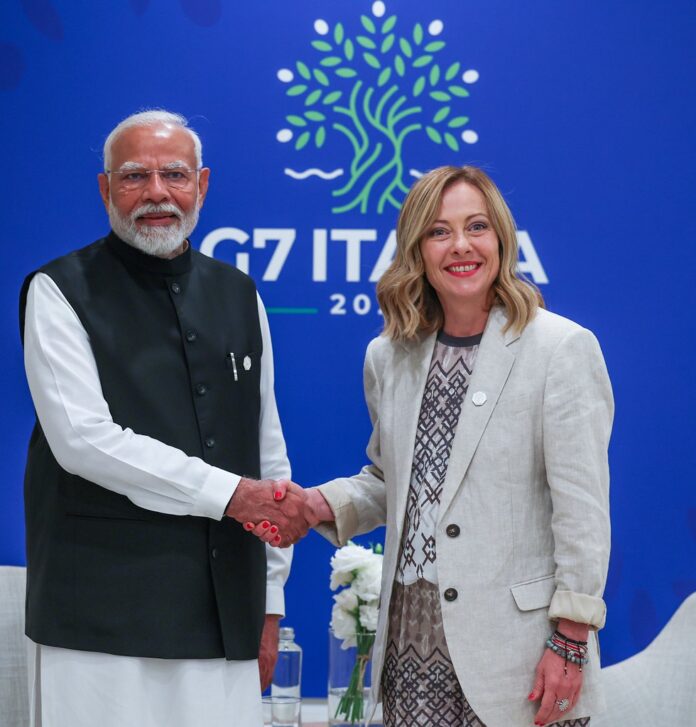Defence and strategic collaboration took centre stage at the Italy–India Business, Science and Technology Forum held in New Delhi, as both nations advanced their commitment to the Joint Strategic Action Plan 2025–29. The high-level gathering, which follows the November 2024 meeting between Prime Ministers Narendra Modi and Giorgia Meloni, reaffirmed India and Italy’s shared resolve to expand bilateral cooperation across defence manufacturing, joint R&D, and Indo-Pacific security.
Italian Deputy Prime Minister and Minister of Foreign Affairs, Antonio Tajani, described India as a “strategic partner” and underscored the growing convergence on regional stability and defence preparedness. “India is at the heart of our strategy for the Indo-Pacific,” Tajani said, highlighting Italy’s interest in collaborating on defence production and innovation, alongside economic and technological exchanges.
Union Minister of Commerce & Industry, Shri Piyush Goyal, pointed to the strong alignment between India’s Make in India and Atmanirbhar Bharat programmes and Italy’s advanced industrial capabilities. He invited Italian defence firms to explore co-development opportunities in India, especially in areas such as aerospace, precision engineering, dual-use technologies, and next-gen combat platforms.
External Affairs Minister Dr. S. Jaishankar noted that Italy’s presence in the Indo-Pacific and its growing ties with India reflect a broader strategic convergence. “We see defence and strategic ties as an essential part of our comprehensive partnership,” he said, adding that joint innovation and industrial collaboration would be key to long-term security cooperation. He also met his Italian counterpart, Antonio Tajani, and said that the visit gives the countries an opportunity to move bilateral cooperation forward, especially in science and technology.
Both sides reiterated their intent to operationalise the defence and security elements of the Strategic Action Plan, with a focus on joint production, technology transfer, and enhanced interoperability. Discussions also touched on maritime security, cyber defence, and emerging domains such as space and AI-enabled defence systems.
The forum marked a decisive shift in India–Italy relations from transactional defence trade to long-term strategic collaboration, positioning both countries as key partners in shaping a stable and secure Indo-Pacific.
India-Italy Defence Ties
India and Italy’s defence engagement has developed over several decades, though it remained low-profile for much of the Cold War and post-Cold War period. Italy was a supplier of select military equipment, especially in naval systems and aviation technologies, with companies like Leonardo (formerly Finmeccanica) entering the Indian market in the early 2000s. However, cooperation remained transactional, and political-military alignment was limited.
The relationship faced a major setback in 2012–2013 due to the Italian marines case, which led to a freeze in diplomatic and defence-level exchanges. It wasn’t until the late 2010s, following careful political recalibration, that bilateral ties resumed momentum. By 2023, India and Italy formally elevated their relationship to a strategic partnership, marking a shift from basic defence trade to institutionalised cooperation.
Since then, engagement has expanded to include joint military exercises, training exchanges, and structured dialogue under the Military Cooperation Group. Italy’s support for India’s Indo-Pacific Oceans Initiative and its participation in regional security dialogues show a growing strategic convergence.
In 2025, both sides began negotiating a Defence Industrial Cooperation Roadmap to enhance co-production, joint R&D, and technology sharing, particularly in aerospace, cyber defence, and maritime systems. India’s ‘Make in India’ initiative offers a platform for Italian firms to enter long-term production partnerships.
As confirmed by The Hindu and The Economic Times, the defence relationship is now moving toward structured, long-range collaboration—anchored not just in trade, but in shared strategic outlooks, especially in the Indo-Pacific.



